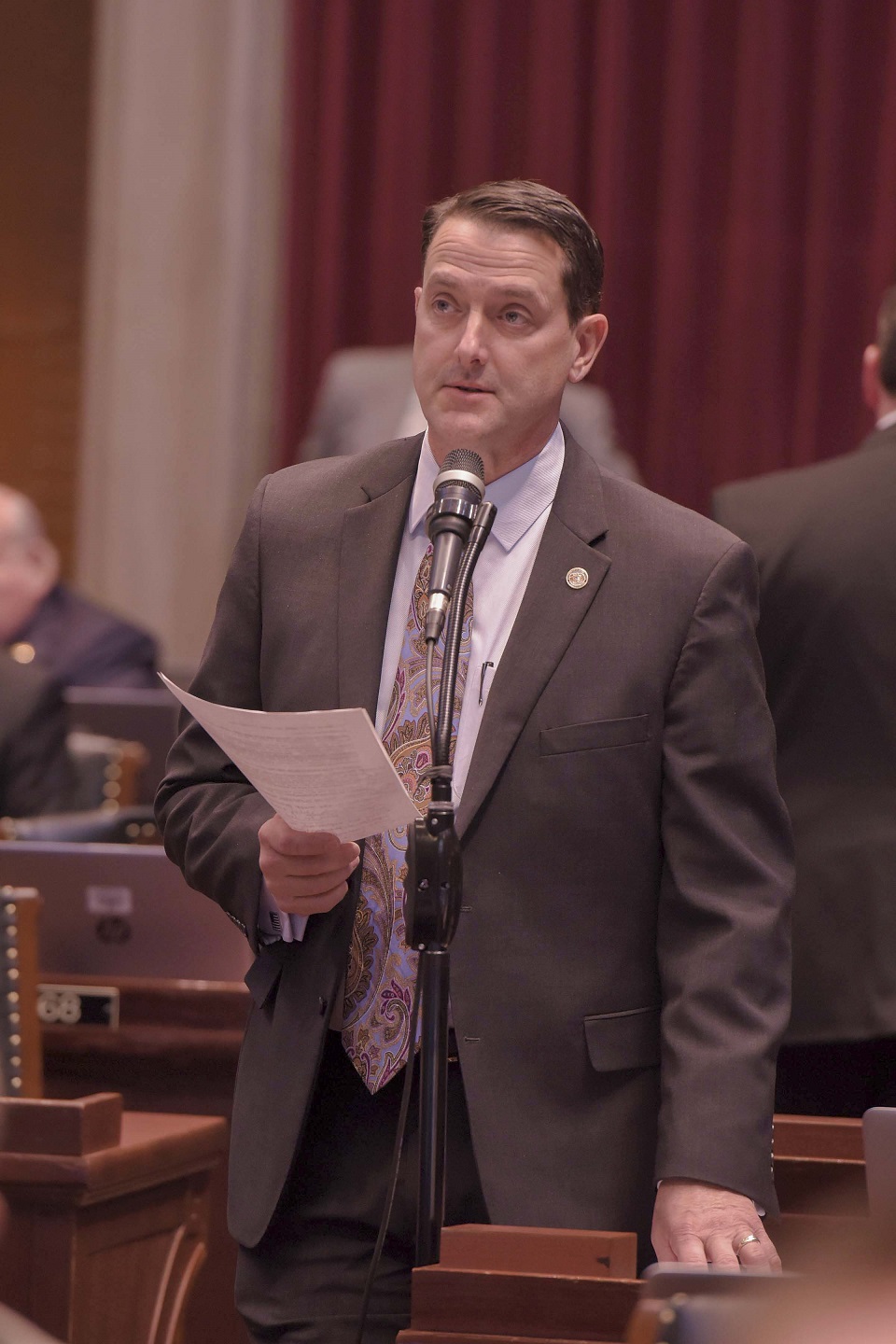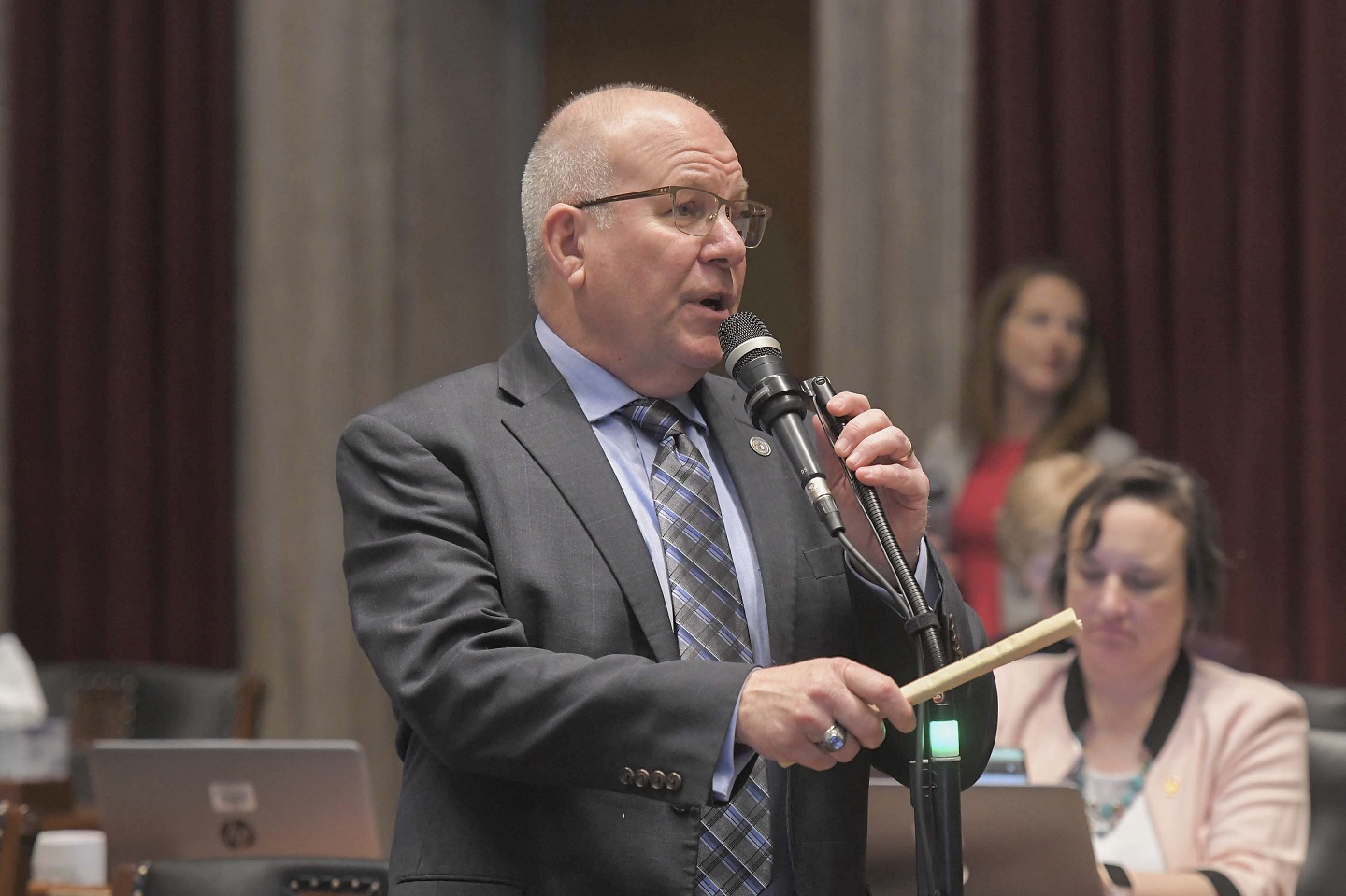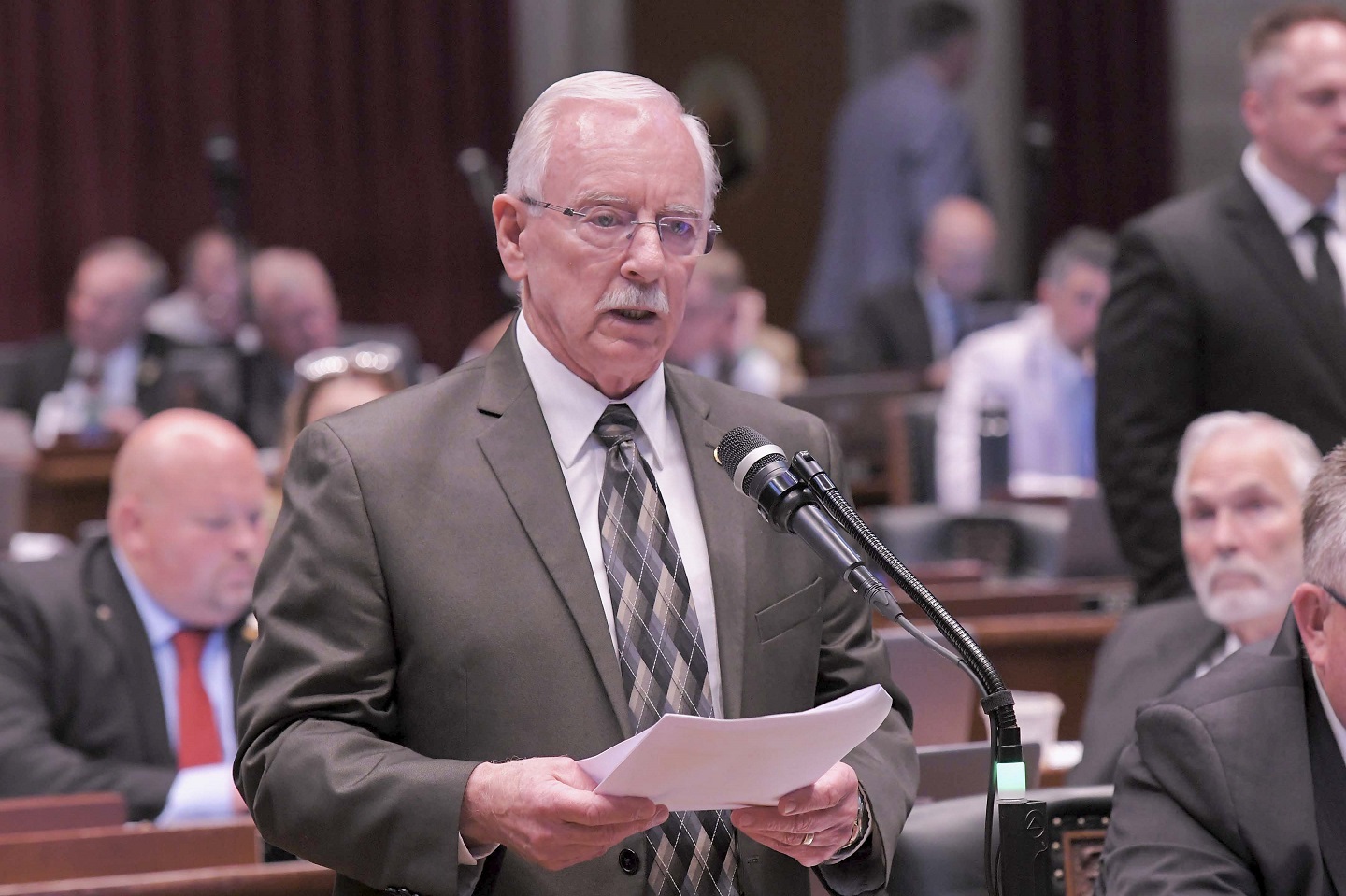Missouri’s newly-enhanced distracted driving law takes effect on Monday, and House members say it’s a message to drivers in the state: put your phones down.

After years of the General Assembly considering and rejecting bans on texting while driving, the legislature this year agreed to a ban that covers holding a phone; the typing or sending of text-based messages; video calls or broadcasting or otherwise recording and sharing videos; and watching videos or movies. The language was part of Senate Bill 398, signed into law last month.
It’s called the “Siddens Bening Hands Free Law,” named for two Missourians who died in separate distracted driving incidents.
Representative Jeff Knight (R-Lebanon) handled that proposal in the House. He knew the history of the texting while driving issue was one of a long time lack of consensus. This was based, in part, on conservative lawmakers’ desire not to infringe on individual liberties. So, Knight had concerns when it was amended to another bill he was carrying and wanted to get passed. After talking to some of the opponents of the issue and others with a stake, he decided to let it stand.
He said as technology has evolved, any need to let people keep holding their phones has diminished.
Representative Lane Roberts (R-Joplin) has an extensive background in law enforcement, including as a former Joplin Police Chief and Director of the Department of Public Safety. He agreed that this year’s proposal included the right provisions at the right time.
“Finding that balance between individual liberty for one person when it begins to encroach on the safety or the liberty of another is not a bright line. It’s always a challenge to find the balance, and I think that’s what this bill does,” said Roberts. “It recognizes that we’ve grown to the point where the use of technology is so prevalent that misuse of it puts other people at risk, and then given the fact that there is the availability, so many alternatives for hands-free use of technology, it’s just time to think about how we go about limiting that.”
Also on the language’s list of bipartisan backers is Representative Steve Butz (D-St. Louis), whose background is in the insurance industry. He said distracted driving has long been a concern for that industry.

Knight and Roberts, like others in their caucus, said they still hold personal liberties as important, but said those concerns were tempered by the fact that the bill makes phone use a secondary offense. That means a traffic stop can’t be triggered just by phone use. A person has to be stopped for something else before they can be cited.
Butz agrees that the most important thing this bill does is send a message that legislators, on behalf of Missouri citizens, are telling drivers that they shouldn’t be on their phones and behind the wheel at the same time.
“At this point I don’t believe anybody believes that texting while you’re operating a vehicle, regardless of who you are or where you are, could possibly be considered safe,” said Roberts. “The important thing is that the law now acknowledges that [texting while driving] is problematic. There are now some parameters in place to exercise some level of control and hopefully it will lead to some prudence in the development of technology and people’s decision making. It’s like seatbelts. [The state’s seatbelt law creates a secondary offense] but the fact that you’re required to wear it, the fact that it gets a lot of attention, has most definitely increased the use of seatbelts, so this is very similar.”

As was the case with the seatbelt law when it passed, Roberts and his colleagues expect it will take some time to see wholesale change in drivers’ habits now that the updated distracted driving law has been passed.
The tougher law regarding phone use was long sought by road safety advocates, who are pleased with the passage. The Missouri Department of Transportation says in the ten years up to 2021 there were nearly 200,000 distracted driving related crashes in Missouri, which caused no fewer than 801 deaths. Some agencies think the real totals are far greater.
Michael Bening of Raymore was 46 and trying to clear debris from a highway when he was hit and killed by a driver believed to have been distracted, on Interstate 49 in Cass County in May, 2021. Randall Siddens was picking up traffic cones after a race in Columbia in May, 2019, when a woman who was driving while voice chatting swerved around a vehicle stopped at a red light and hit him.
The bill including the law bearing their names was passed out of the House 97-40. While the law takes effect on Monday, its penalty provisions won’t be enacted until January 1, 2025, to allow for a grace period while the public is educated on the new law.


